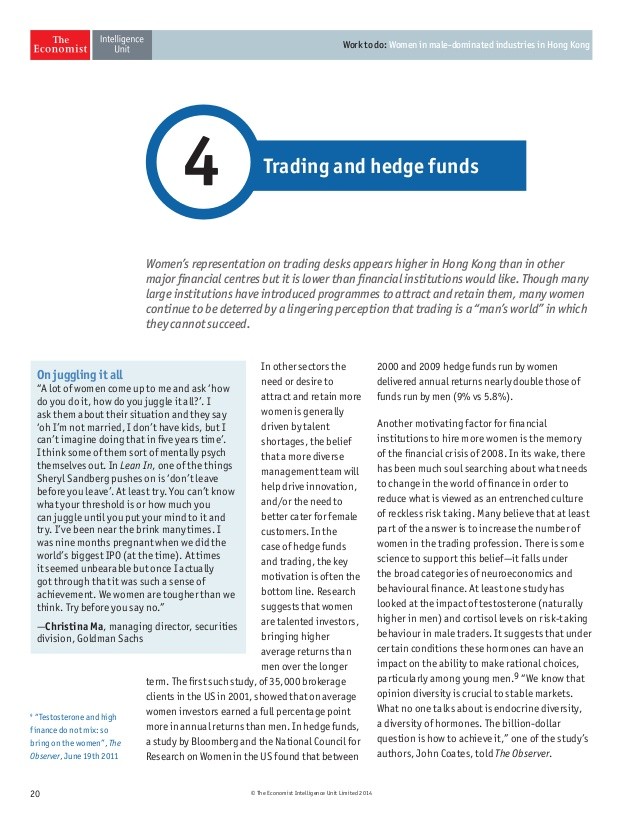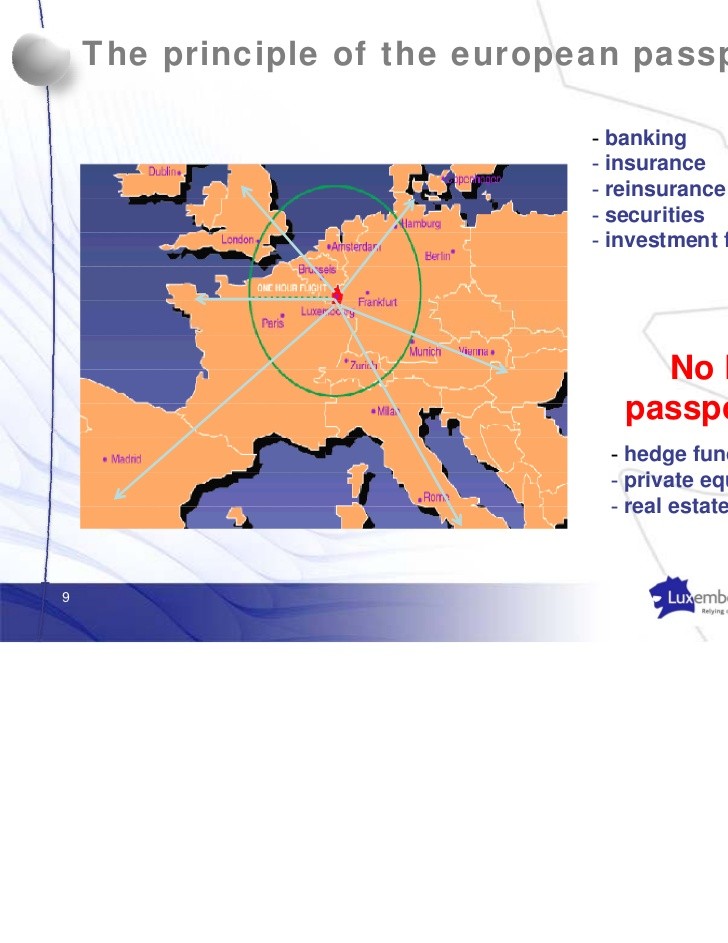How To Start A Hedge Fund In Hong Kong A Legal Primer (Part 2 of 2) Finance and Banking Hong
Post on: 19 Май, 2015 No Comment

Taxation of the Fund
In structuring management arrangements, it is important to ensure that the arrangements do not subject the fund itself to taxation in Hong Kong.
In broad terms, a fund will be considered to be non-resident for Hong Kong tax purposes and thus, exempt from Hong Kong profits tax where the central management and control of a fund is exercised outside Hong Kong and transactions are executed through SFC regulated intermediaries in specified asset classes such as securities, futures and foreign exchange.
Effect of Hong Kong Base
The presence of a sub-manager in Hong Kong who makes investment decisions on behalf of the fund is unlikely by itself to result in the central management and control of the fund being exercised in Hong Kong.
Nevertheless, steps should be taken to ensure that the central management and control of the fund lies outside Hong Kong. These steps include appointing a majority of non-Hong Kong directors, holding board meetings outside of Hong Kong and ensuring that the board has a real function.
Regulation of Manager
In the common fund structures described above, the sub-manager is based in Hong Kong and will be subject to the requirement under the Securities and Futures Ordinance (SFO ) to obtain a license for Type 9 (asset management) regulated activity from the Securities and Futures Commission (SFC ).
However, variations on these common structures may dictate requirements for Type 4 (advising on securities) or Type 5 (advising on futures contracts) licenses instead. These variations are sometimes attractive in that they may offer lower regulatory hurdles in Hong Kong.
Overview of Licensing
The process of applying for a license from the SFC involves completing prescribed forms for the firm, be it a sub-manager or otherwise, and its individual representatives. This is because under the SFO, licensing requirements extend to both the firm and its individual representatives.
Generally, to license the firm, the SFC forms are supplemented with a business plan and compliance manual. These supplements set out the nature and scope of the business, operational work flow, organization structure and internal controls. They are intended to demonstrate to the SFC that the firm understands its business, that it has the experience and systems to manage the business and its attendant risks and that it will be able to comply with applicable regulatory requirements.
Internal Controls
In this regard, the SFC has historically scrutinized the firms risk management, compliance, valuation and conflict of interest policies and procedures with some vigour. However, the SFC has recently offered to streamline applications from firms (i) who are, or whose parents are, licensed or registered by the U.S. Securities and Exchange Commission or the U.K. Financial Services Authority, or (ii) who have, or whose parents have, proven track records.
Capital Requirements
Under the SFO, a firm licensed for asset management is normally required to have paid-up capital of HK$5,000,000 and to maintain liquid capital of at least HK$3,000,000. However, if the firm does not hold client assets, there are no paid-up capital requirements and liquid capital requirements can be reduced to as low as HK$100,000.
Responsible Officers
The most important representatives for a firm will be the responsible officers. Every firm applying to be licensed must have 2 individuals who are approved by the SFC as responsible officers.
At least 1 of these individuals must fully satisfy the SFC that he or she has adequate local regulatory knowledge, industry knowledge, relevant experience and management experience.
Generally, the portfolio manager himself will be a responsible officer.
Licensing Examination
To satisfy the requirement for local regulatory knowledge, the individual must pass a regulatory examination unless otherwise exempted. Individuals who are, or have previously been, licensed as a responsible officer are normally exempt from the regulatory examination.
Individuals who are, or have previously been, licensed as a responsible officer are normally exempt from the regulatory examination.
Furthermore, individuals may be exempted from the regulatory examination at the discretion of the SFC if:
- the individual is licensed or registered for investment management or advisory business in the U.S. or U.K. or has over 8 years of relevant experience in recognized markets;
- the firm for which the individual will act as responsible officer will only serve professional investors;
- the firm is able to confirm that regulatory and compliance support will be provided to the individual; and
- the individual takes a post-licensing refresher course on local regulations.

Relevant Experience
To satisfy the requirement for relevant experience, the SFC generally requires a responsible officer to have at least 3 years of experience in the management of public funds (i.e. collective investment schemes sold to the public), proprietary trading, alternative investments or investment research.
Alternative Licensing Approaches
In light of difficulties sometimes encountered in applying for a Type 9 license, a firm may consider avoiding a Type 9 license altogether. Whilst a license from the SFC is still required under these fund structures, the license will be for Type 4 or 5 regulated activity instead. These alternatives may be suitable, for example, for persons who do not have experience considered to be relevant by the SFC.
Broadly, there are 2 alternatives. In one alternative, investment discretion is exercised outside of Hong Kong by an investment manager. The portfolio manager himself remains in Hong Kong as an employee of an adviser to the investment manager. While the recommendations made by the adviser are in theory not binding, they are invariably followed.
In another alternative, investment discretion is exercised by the fund itself. The fund is advised by an investment adviser. The portfolio manager remains in Hong Kong both as an employee of the fund and a sub-adviser. The portfolio manager makes recommendations as an employee of the sub-adviser to the investment adviser and implements those recommendations as an employee of the fund.
Marketing Arrangements
In broad terms, securities laws of key capital raising jurisdictions generally restrict offers or invitations to the public to acquire shares or other interests in hedge funds. Specific jurisdictions may establish further restrictions on top of these restrictions. For example, where capital is raised from U.S. pension funds, the assets may be subject to requirements of the Employment Retirement Income Security Act (ERISA ). Unless appropriate legal measures are taken, the manager of a hedge fund which accepts ERISA assets may become subject to onerous duties under ERISA.
Authorization
In Hong Kong, offers and invitations to the public to acquire shares or other interests in hedge funds are subject to regulatory authorization requirements unless exempted. Whilst the SFC has established a regulatory framework for the authorization of hedge funds, both in the interest of time and maximizing flexibility in capital raising, investor reporting and investment strategy, portfolio managers tend to prefer to avoid authorization by relying on exemptions. The most commonly used exemptions are set out below.
Professional Investors
SFC authorization may not be required if the hedge fund is sold only to professional investors (SFO professional investors ).
SFO professional investors include institutional investors and non-institutional investors. The former include bankers, dealers, insurance companies and certain regulated collective investment schemes. The latter include:
- High net worth individuals, meaning individuals with a portfolio of not less than HK$8 million;
- Corporations whose sole business is to hold investments and which are wholly-owned by high net worth individuals (as defined above);
- Corporations or partnerships with a portfolio of not less than HK$8 million or total assets of not less than HK$40 million;
- Trust corporations registered under the Trustee Ordinance or regulated under the laws of a place outside Hong Kong having total assets under trust of not less than HK$40 million.
Sophisticated Investors
Marketing materials for a hedge fund structured as a company may be exempt from the authorization requirements if the shares are offered only to persons whose ordinary business is to buy or sell shares or debentures, whether as principal or agent.
Minimum Subscription
Marketing materials of a hedge fund structured as a company may be exempt from the authorization requirement if (i) the materials contain a prescribed warning statement, and (ii) the minimum denomination or the minimum consideration payable by any person for the shares to be subscribed is not less than HK$500,000.
The content of this article is intended to provide a general guide to the subject matter. Specialist advice should be sought about your specific circumstances.
To print this article, all you need is to be registered on Mondaq.com.
Click to Login as an existing user or Register so you can print this article.














